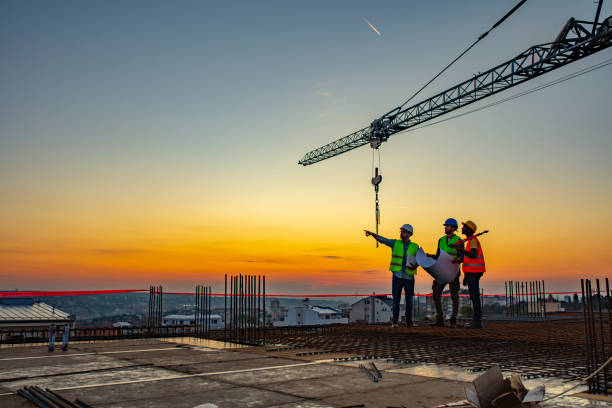Few tasks are as important as roofing repairs or replacements when it comes to home improvement projects. Your roof serves as the first line of defense, shielding your house and everything within from the elements. Before beginning any roofing project, it is crucial to take the roofing contractor’s insurance and license into account. In this comprehensive guide, we will go into great detail about how important it is to confirm that the Roofing contractor you have chosen is properly licensed and insured.
Licensing: A Seal of Professionalism
Prior to allowing the contractor you select to begin any work on your roof, confirm that they hold the necessary licenses. A license is proof of a contractor’s expertise, professionalism, and adherence to industry standards; it is more than just a piece of paper. Roofing contractors must obtain a license in many jurisdictions in order to legally operate.
A homeowner feels more confident when a roofing contractor has a license. It shows that the contractor is dedicated to maintaining the highest standards of quality in their work, has received the required training, and has the requisite skills. Licensed contractors are more likely to be familiar with local building codes, suggested practices, and the most recent advancements in the industry. This ensures that the roofing project you have planned will be finished accurately and legally.
Additionally, hiring a licensed roofing contractor gives you options in case there are disagreements or poor-quality work. Regulatory bodies provide an additional layer of protection for homeowners by having procedures in place to handle complaints made against licensed contractors. This extra degree of accountability can be very helpful, especially in light of the significant financial commitment that a roofing project entails.
Insurance: Mitigating Risks and Protecting Homeowners
In addition to licensing, insurance is a fundamental aspect of a reputable roofing contractor’s profile. Roofing projects inherently involve risks, ranging from on-site accidents to unforeseen damages to your property. Without adequate insurance coverage, you as the homeowner, could be held liable for these incidents, potentially leading to significant financial repercussions.
Liability insurance is one of the main kinds of insurance you should look for in a roofing contractor. This coverage safeguards you in the event that someone on the job site is hurt or property is damaged due to the contractor’s actions or negligence.
Workers’ compensation insurance is another essential insurance component. Working at heights is a physically taxing aspect of roofing, which raises the possibility of accidents. If an employee gets hurt while working on your property, workers’ compensation insurance makes sure you won’t have to pay for their medical bills or missed income. In addition to being required by law in many places, this insurance is also a moral requirement that shows a contractor’s dedication to the health and safety of their team.
How to Verify Licensing and Insurance
Verifying the licensing and insurance of a roofing contractor is a straightforward yet essential step in your selection process. Most reputable contractors will be pleased to provide this information; some will even list it on their website or other marketing materials. An independent verification must be carried out in order to ensure the accuracy of this information.
Check with the Board of Licensing: Speak with the local licensing board or the appropriate regulatory body to find out if a contractor is licensed. They are able to provide information regarding the contractor’s qualifications, history of disciplinary actions, and license expiration date. Request Proof of Insurance: Request a copy of the roofing contractor’s insurance certificates. Verify that the certificates for workers’ compensation and liability are up-to-date. To make sure the contractor is covered, it is best to speak with the insurance provider directly.
Examine testimonials and request references: Past customers’ testimonials can provide valuable information about a contractor’s dependability and expertise. Furthermore, do not be afraid to request references from previous projects from the contractor. You can get firsthand information about the contractor’s craftsmanship and punctuality by getting in touch with these references.
Consult Online Databases: Some jurisdictions maintain online databases where you can verify a contractor’s license status. Checking these databases can provide an added layer of assurance regarding the contractor’s legitimacy.
Conclusion
When it comes to roofing projects, giving your selected contractor’s license and insurance top priority is not just a safety precaution but also a wise investment in the longevity and structural integrity of your house. Licensed contractors ensure that your roofing project is completed precisely and in compliance with industry standards because they bring a level of professionalism and expertise to the table.
Conversely, insurance acts as a safety net, shielding you from unforeseen events and possible liabilities. It’s a monetary safety net that shows how dedicated a contractor is to the security of your investment and the welfare of their team.
As a homeowner, taking the time to verify licensing and insurance is a proactive step toward a successful roofing project. It reduces risks, gives comfort, and prepares the ground for working together with a roofing contractor who prioritizes openness, responsibility, and client satisfaction. Recall that you should never settle for anything less than a certified and insured roofing contractor when it comes to your house.


